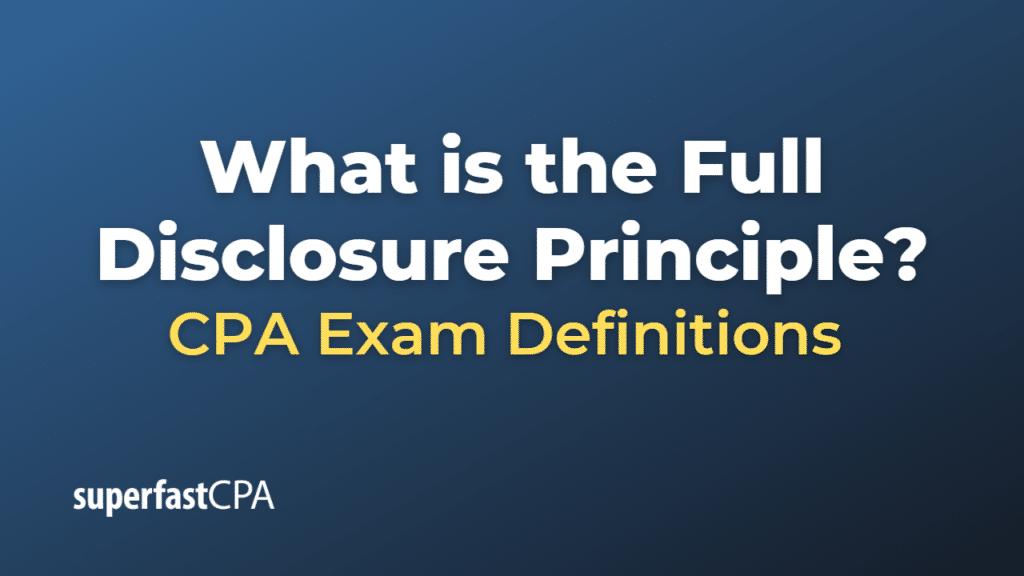Full Disclosure Principle
The full disclosure principle is a concept in accounting that requires a company to provide all necessary information in its financial statements and other disclosures that could affect a reader’s understanding of those documents. The principle is one of the basic tenets of modern financial reporting and is integral to the transparency and reliability of financial statements.
The full disclosure principle does not necessarily mean that absolutely every piece of information related to a company’s operations must be disclosed. Instead, the principle requires the disclosure of information that is material, or significant enough to influence a decision by users of the financial statements, such as investors, creditors, or regulators.
Information can be disclosed in several places within a company’s financial report:
- Financial Statements: The balance sheet, income statement, and cash flow statement provide a snapshot of a company’s financial status at a particular point in time.
- Notes to the Financial Statements: Often, the details behind the figures in the financial statements are explained in accompanying notes. These notes can provide a wide range of information, from accounting policies, breakdown of specific items on the balance sheet or income statement, contingent liabilities, etc.
- Management Discussion and Analysis (MD&A): This section provides management’s perspective on the company’s financial performance and condition, including discussion of trends, significant events, and uncertainties that have affected or could affect performance.
- Other Disclosures: Some disclosures can be found in other parts of a company’s annual report or filings with securities regulators. For example, related party transactions, subsequent events, and risks and uncertainties.
The full disclosure principle aims to provide a complete, transparent, and honest picture of a company’s financial health, giving stakeholders the information they need to make informed decisions. It also helps ensure fairness and transparency in financial markets by reducing information asymmetry between companies and their stakeholders.
Example of the Full Disclosure Principle
Let’s consider a hypothetical company, TechGiant Corp., that is publicly traded and therefore, required to adhere to the full disclosure principle in its financial reporting.
- Financial Statements: TechGiant Corp. publishes its balance sheet, income statement, and cash flow statement quarterly and annually, showing its financial performance and position.
- Notes to the Financial Statements: TechGiant Corp. includes notes to its financial statements to provide more detailed information. For instance, if there’s a significant increase in its property, plant, and equipment account, a note might explain that this is due to the acquisition of a new manufacturing facility.
- Management Discussion and Analysis (MD&A): In its annual report, TechGiant Corp.’s management discusses the company’s performance during the year, its financial position, and future prospects. It might explain, for example, that profits were down due to increased competition but are expected to improve because of a new product launch.
- Other Disclosures: TechGiant Corp. discloses in its annual report that its CEO also owns a supply company that TechGiant contracts with, detailing the terms of these related-party transactions. Additionally, if TechGiant Corp. is involved in a significant lawsuit, it discloses the nature of the lawsuit and the potential financial impact, if it can be reasonably estimated.
Through all these disclosures, TechGiant Corp. gives shareholders, potential investors, and other stakeholders a comprehensive view of its financial situation, complying with the full disclosure principle. This principle ensures that those reading the financial statements and other disclosures have enough information to make informed decisions about the company.













